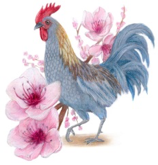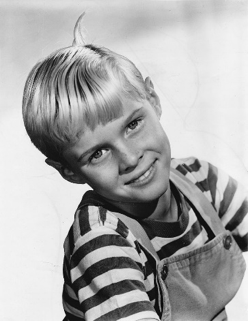- Home
- About
- Submit
- Features
- Interviews
- Book Reviews
- Previous Issues
- Blog
- Contact
-
Issue #25 Spring 2023
- Issue #25 Art Spring 2023 >
-
Issue #25 Poetry Spring 2023
>
- Emma Bolden Spring 2023
- Ronda Piszk Broatch Spring 2023
- M. Cynthia Cheung Spring 2023
- Flower Conroy Spring 2023
- Jill Crammond Spring 2023
- Sandra Crouch Spring 2023
- Satya Dash Spring 2023
- Rita Feinstein Spring 2023
- Dan Fliegel Spring 2023
- Lisa Higgs Spring 2023
- Dennis Hinrichsen Spring 2023
- Mara Jebsen Spring 2023
- Abriana Jetté Spring 2023
- Letitia Jiju Spring 2023
- E.W.I. Johnson Spring 2023
- Ashley Kunsa Spring 2023
- Susanna Lang Spring 2023
- James Fujinami Moore Spring 2023
- Matthew Murrey Spring 2023
- Pablo Otavalo Spring 2023
- Heather Qin Spring 2023
- Wesley Sexton Spring 2023
- Ashish Singh Spring 2023
- Sara Sowers-Wills Spring 2023
- Sydney Vogl Spring 2023
- Elinor Ann Walker Spring 2023
- Andrew Wells Spring 2023
- Erin Wilson Spring 2023
- Marina Hope Wilson Spring 2023
- David Wojciechowski Spring 2023
- Jules Wood Spring 2023
- Ellen Zhang Spring 2023
- BJ Zhou Spring 2023
- Jane Zwart Spring 2023
- Issue #25 Fiction Spring 2023 >
- Issue #25 Nonfiction Spring 2023 >
-
Issue #26 Fall 2023
- Issue #26 Art Fall 2023 >
-
Issue #26 Poetry Fall 2023
>
- Fasasi Abdulrosheed Oladipupo Fall 2023
- Christopher Ankney Fall 2023
- Magdalena Arias Vásquez Fall 2023
- John Peter Beck Fall 2023
- Mihir Bellamkonda Fall 2023
- Benjamin Bellas Fall 2023
- Michael Carson Fall 2023
- Kevin Clark Fall 2023
- Aaron Coleman Fall 2023
- Mark DeCarteret Fall 2023
- Denise Duhamel Fall 2023
- Brandel France de Bravo Fall 2023
- Tina Gross Fall 2023
- Amorak Huey Fall 2023
- James Kimbrell Fall 2023
- Casey Knott Fall 2023
- Stephen Lackaye Fall 2023
- Cynthia Manick Fall 2023
- Savannah McClendon Fall 2023
- John Muellner Fall 2023
- Mollie O’Leary Fall 2023
- Joel Peckham Fall 2023
- Natalia Prusinska Fall 2023
- henry 7. reneau, jr. Fall 2023
- Esther Sadoff Fall 2023
- Hilary Sallick Fall 2023
- Kelly R. Samuels Fall 2023
- Issue #26 Fiction Fall 2023 >
-
Issue #27 Spring 2024
- Issue #27 Art Spring 2024 >
-
Issue #27 Poetry Spring 2024
>
- Terry Belew Spring 2024
- Dustin Brookshire & Diamond Forde Spring 2024 Spring 2024
- Dustin Brookshire & Caridad Moro-Gronlier Spring 2024 Spring 2024
- Charlie Coleman Spring 2024
- Isabelle Doyle Spring 2024
- Reyzl Grace Spring 2024
- Kelly Gray Spring 2024
- Meredith Herndon Spring 2024
- Mina Khan Spring 2024
- Anoushka Kumar Spring 2024
- Cate Latimer Spring 2024
- BEE LB Spring 2024
- Grace Marie Liu Spring 2024
- Sarah Mills Spring 2024
- Faisal Mohyuddin 2024
- Marcus Myers Spring 2024
- Mike Puican Spring 2024
- Sarah Sorensen Spring 2024
- Lynne Thompson Spring 2024
- Natalie Tombasco Spring 2024
- Alexandra van de Kamp Spring 2024
- Donna Vorreyer Spring 2024
- Fiction #27 Spring 2024 >
- Nonfiction #27 Spring 2024 >
Denise Duhamel & Julie Marie Wade
50 States
The state bird is the blue hen chicken. The state flower is the peach blossom. The state beverage is milk, which builds strong teeth and bones. When I learned Delaware was the first state to ratify the Constitution, it all made sense. “If I were a state, Miss Campbell, I’d be Delaware,” I declared. My first-grade teacher was very literal, no fan of the subjunctive at all. “But you’re a little girl,” she said, “and little girls cannot be states.” Still, I wrote a valentine to Delaware, with a scraggly chicken and a frilly flower. I drew a milk carton with my own face sketched on the side. What was missing from Delaware was me—a fellow eager beaver, wholesome and colorful and always first in line! One spring when I was grown, my beloved and I drove due east to Rehoboth Beach. We read on a sign: This sandy hamlet has one of the most bustling gay beach communities in all the United States. “Another reason to like Delaware,” I smiled. A few years later, we went back again to roam the grounds of St. Andrews School in Middletown where they filmed Dead Poets Society. That’s when the email came, so serendipitous I feared no one would believe: Congratulations! Red Hen Press will be publishing your collection of poems! (And what was a red hen but a blue hen chicken dressed up for Valentine’s Day?) For my bio, I submitted this: Poet lives and writes on the Delaware seashore.
My father was born in Butte and moved with his parents to Billings soon after. He was a cheerful blond boy with cowlicks and overalls, bright white teeth and an impish grin. An uncanny look-alike to TV’s “Dennis the Menace,” he answered to “Billy from Billings,” the son of John, a good-natured traveling salesman and his devoted wife June, brother to a tow-headed sister named Linda. Idyllic as a sitcom family themselves, the Wades lived in Montana till Bill was eleven years old. Once, I had to interview my father for a class project about origins. He explained that while he came to love the West Coast, he never forgot his beginnings in Big Sky Country. “We played Cowboys and Indians all day in the summertime, climbing in the cottonwood trees. In winter, it snowed and snowed, but we were always warm. We had heavy coats lined with goose down. Even when temperatures dropped below zero, we never wanted to come inside.” I asked if he ever went back to the Treasure State, even for a visit, and my father shook his head. “Someday,” he said. “We’ll go together, you and me and Mom.” Then, I watched a shadow fall across his face. “But the thing about going back—it’s harder than you think.” Why is that, Dad? “All the cottonwoods will be smaller. Memory makes everything so grand.”
On the paper was written the name of the state about which we would do our oral presentations. I plucked out Nevada, which I pronounced with the stress on the wrong syllable. Coupled with my Rhode Island accent, my propensity to add extra R’s, I said “Never-da” until my teacher corrected me. I went to the library where I learned about the desert and cactus, the Hoover dam. I learned about legalized gambling and a neon cowboy who tipped his neon hat on the Las Vegas strip. Nevada was the only state at the time where gambling was legal. Gamblers often got free steaks at casinos. I told the class about my exciting findings, about roulette wheels and crap tables and slot machines. And there’s one other thing that’s only legal in Nevada, I said, something called “prostitution.” I pronounced the first syllable with a long “o,” like prose. Still, my teacher knew what I meant and told me to wrap it up. “What’s prose-it-too-shun?“ Linda asked. “That’s when a man pays a lady to kiss her!” Brian said. “It is not!” I protested, though I had neglected to look up the meaning of the word. Everyone started to laugh, except my teacher and me. Linda left high school her senior year and moved out to Nevada to study nursing. She married a compulsive gambler in a drive-through wedding chapel in Las Vegas. She lived in a subdivision right outside Sin City and patched up prostitutes who often found themselves in the ER.
--
Denise Duhamel’s most recent book of poetry is Scald (Pittsburgh, 2017). She is a is a Distinguished University Professor at Florida International University in Miami.
Julie Marie Wade is an associate professor of creative writing at Florida International University. Her most recent collections are Same-Sexy Marriage: A Novella in Poems and The Unrhymables: Collaborations in Prose, co-authored with Denise Duhamel.
- Home
- About
- Submit
- Features
- Interviews
- Book Reviews
- Previous Issues
- Blog
- Contact
-
Issue #25 Spring 2023
- Issue #25 Art Spring 2023 >
-
Issue #25 Poetry Spring 2023
>
- Emma Bolden Spring 2023
- Ronda Piszk Broatch Spring 2023
- M. Cynthia Cheung Spring 2023
- Flower Conroy Spring 2023
- Jill Crammond Spring 2023
- Sandra Crouch Spring 2023
- Satya Dash Spring 2023
- Rita Feinstein Spring 2023
- Dan Fliegel Spring 2023
- Lisa Higgs Spring 2023
- Dennis Hinrichsen Spring 2023
- Mara Jebsen Spring 2023
- Abriana Jetté Spring 2023
- Letitia Jiju Spring 2023
- E.W.I. Johnson Spring 2023
- Ashley Kunsa Spring 2023
- Susanna Lang Spring 2023
- James Fujinami Moore Spring 2023
- Matthew Murrey Spring 2023
- Pablo Otavalo Spring 2023
- Heather Qin Spring 2023
- Wesley Sexton Spring 2023
- Ashish Singh Spring 2023
- Sara Sowers-Wills Spring 2023
- Sydney Vogl Spring 2023
- Elinor Ann Walker Spring 2023
- Andrew Wells Spring 2023
- Erin Wilson Spring 2023
- Marina Hope Wilson Spring 2023
- David Wojciechowski Spring 2023
- Jules Wood Spring 2023
- Ellen Zhang Spring 2023
- BJ Zhou Spring 2023
- Jane Zwart Spring 2023
- Issue #25 Fiction Spring 2023 >
- Issue #25 Nonfiction Spring 2023 >
-
Issue #26 Fall 2023
- Issue #26 Art Fall 2023 >
-
Issue #26 Poetry Fall 2023
>
- Fasasi Abdulrosheed Oladipupo Fall 2023
- Christopher Ankney Fall 2023
- Magdalena Arias Vásquez Fall 2023
- John Peter Beck Fall 2023
- Mihir Bellamkonda Fall 2023
- Benjamin Bellas Fall 2023
- Michael Carson Fall 2023
- Kevin Clark Fall 2023
- Aaron Coleman Fall 2023
- Mark DeCarteret Fall 2023
- Denise Duhamel Fall 2023
- Brandel France de Bravo Fall 2023
- Tina Gross Fall 2023
- Amorak Huey Fall 2023
- James Kimbrell Fall 2023
- Casey Knott Fall 2023
- Stephen Lackaye Fall 2023
- Cynthia Manick Fall 2023
- Savannah McClendon Fall 2023
- John Muellner Fall 2023
- Mollie O’Leary Fall 2023
- Joel Peckham Fall 2023
- Natalia Prusinska Fall 2023
- henry 7. reneau, jr. Fall 2023
- Esther Sadoff Fall 2023
- Hilary Sallick Fall 2023
- Kelly R. Samuels Fall 2023
- Issue #26 Fiction Fall 2023 >
-
Issue #27 Spring 2024
- Issue #27 Art Spring 2024 >
-
Issue #27 Poetry Spring 2024
>
- Terry Belew Spring 2024
- Dustin Brookshire & Diamond Forde Spring 2024 Spring 2024
- Dustin Brookshire & Caridad Moro-Gronlier Spring 2024 Spring 2024
- Charlie Coleman Spring 2024
- Isabelle Doyle Spring 2024
- Reyzl Grace Spring 2024
- Kelly Gray Spring 2024
- Meredith Herndon Spring 2024
- Mina Khan Spring 2024
- Anoushka Kumar Spring 2024
- Cate Latimer Spring 2024
- BEE LB Spring 2024
- Grace Marie Liu Spring 2024
- Sarah Mills Spring 2024
- Faisal Mohyuddin 2024
- Marcus Myers Spring 2024
- Mike Puican Spring 2024
- Sarah Sorensen Spring 2024
- Lynne Thompson Spring 2024
- Natalie Tombasco Spring 2024
- Alexandra van de Kamp Spring 2024
- Donna Vorreyer Spring 2024
- Fiction #27 Spring 2024 >
- Nonfiction #27 Spring 2024 >



